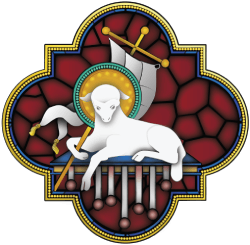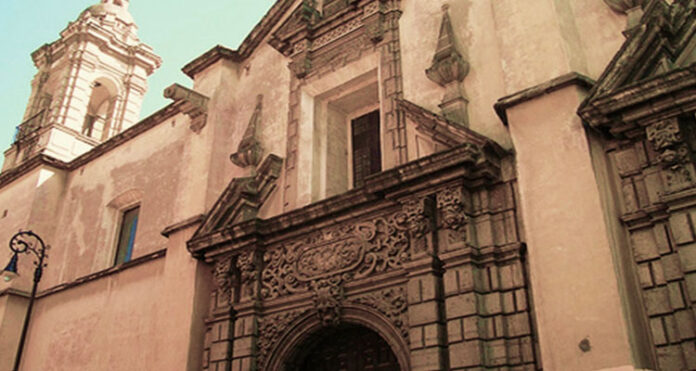There is a bitter crisis in the Anglican Church of Mexico, grounded in disputed elections for both a bishop and the province’s primate. Legal proceedings are winding their way through the serpentine Mexican legal system, and the Anglican Communion Office has attempted to calm the conflict.
The difficulties were sparked by an incident during an Electoral Synod of the Diocese of Northern Mexico, which met on April 8, 2022, in Monterrey. Five clerics say they were prevented from entering the voting site. The synod elected the Rev. Oscar Pulido. His opponents, including the five clerics, organized a protest, signed a public letter rejecting the election, and claimed they had suffered threats and coercion, both before and after the election.
Before these disturbances, Francisco Moreno was the Bishop of Northern Mexico and primate of the five-diocese Province of Mexico from 2013 to 2020. He was supposed to resign both positions in 2020, when he reached the age of mandatory retirement. But due to the challenges of the COVID-19 pandemic, Moreno remained as Interim Bishop of Northern Mexico, while the interim primacy was passed to Bishop Enrique Trevino of Cuernavaca, senior bishop of the province.
Less than two months after the Electoral Synod in Northern Mexico, a General Synod met in Mexico City on June 7, 2022, to elect the next Primate of Mexico. But with the earlier dispute unresolved, two slates of delegates from the region presented themselves as legitimate: one by Pulido and the second by Moreno.
Two other bishops, Julio Cesar Martin of Southeast Mexico and Ricardo Gomez of Western Mexico, reportedly asked Trevino to enter dialogue with both parties. Martin said Trevino was not willing to negotiate, welcoming only the delegation led by Pulido, while blocking attendance by the second delegation.
The delegation led by Pulido supported Trevino for primate. Martin, the other candidate for primate, withdrew his nomination, and claims that the two-thirds majority required by canon law to elect a primate was not reached. Nonetheless, according to the minutes of the synod, Trevino was named the victor, and was described as such by the Anglican Communion Office and other entities, including The Living Church.
The dissenters, now also supported by Martin and Gomez, began to engage in an increasingly public campaign of denunciation. In the meantime, Trevino assumed the mantle of primate, and arranged for the consecration of Pulido as Bishop of Northern Mexico. The dissenting bishops then alleged that in a Zoom meeting, Pulido and the newly consecrated Bishop of Mexico (whose diocese is Mexico City and the surrounding region), Alba Sally Sue Hernandez, were named as members of the board of directors of the Anglican Church in Mexico, the legal entity that manages all financial and property matters in the province. The two dissenting bishops, who previously had made up two-thirds of the board, were not present for this Zoom meeting. They quickly declared the proceedings a fraud.
In Mexico, religious organizations are ordered according to the Religious Associations and Public Worship Law of 1992. This law requires that all churches comply with strict regulations imposed by the state. In exchange for the right to free worship, religious organizations must adhere to these laws, which order their governance and their finances. There are severe penalties for violating these statutes.
Martin has produced numerous documents that appear to demonstrate procedural irregularities, including the use of an unlicensed notary public to declare Pulido the legal representative of the Diocese of Northern Mexico. In this capacity, Pulido is said to have begun undertaking measures against those — clergy and lay people — who had acted against him in the northern region.
Trevino, in the meantime, claims the other party has engaged in irregularities that have led to fraudulent actions. He has declared that Martin and Gomez have both acted contrary to canon law on numerous occasions. For example, he claims that there were discrepancies discovered by audits of their diocesan financial statements, and that in May 2023 Martin was ordered to repay monies given to him from a trust fund of the Episcopal Church. These funds were designated for reconstruction and improvements to a place of worship, but were diverted to general funds, Trevino said.
Bishop Julio Cesar Martin, principal spokesman for the opposition group, completed his theological studies at Huron College in Canada. After a 10-year ministry as dean of the Cathedral of St. Joseph of Grace in Mexico City, he served as a priest in two Canadian parishes before being elected Bishop of South-Eastern Mexico.
He took office on March 10, 2020, just as the global pandemic was declared. The diocese, mostly in the states of Oaxaca and Veracruz, consists of 20 parishes, 15 of which are majority Indigenous (people of the Mixtec and Zapotec nations). Martin is known for his work on intercultural ministry, and his commitment to the inculturation of the gospel. He has also become a leading figure in the LGBT movement in Mexico and beyond.
Martin said a tangled web of historic malfeasance is at the heart of the conflict. He denounced what he called “a lack of transparency, a tolerance for corruption, and a deficit of democratic values that permeate numerous institutions in the country, including the church, including our church.”
He said it has long been a practice that certain groups within the church impose their candidates and decide who votes. Why has he taken persistent action on this matter? “It just isn’t right,” he said passionately. “You can’t just turn a blind eye to fraud.”
The Rev. Alba Sally Sue Hernandez was elected Bishop of Mexico in November 2021. She was consecrated in January 2022. She was the first woman elected bishop in the history of the province, which began ordaining women to the diaconate and the priesthood in 1994. Her priorities are women’s rights, ecumenicism, and fighting sexual abuse within the church. She was one of two female Anglican bishops who met with Pope Francis in January in Rome.
Hernandez concurs with Trevino, saying difficulties have arisen in the church because of corrupt motives among the dissenting bishops. She said — in direct opposition to Martin’s claims — that the dissenting bishops will be subject to legal action, and they have been violating both canon and state law.
She claimed that Martin, Gomez, and Moreno are acting unilaterally and with corrupt personal interest. She said the dissenting bishops are driven by greed for “power, resources, property, and money” and that “no one can stop them.” She said the five clerics who were prevented from voting were not legally ordained.
The troubles continued to fester, and in September 2023 the dissenting bishops reconstituted a board of directors claiming to be the legal administrative body of the church. They said they were stripping Trevino of his primacy. In October 2023, a letter to the wider members of the Anglican Church in Mexico advised them that Bishop Francisco Moreno would be recognized as the legal authority of the church, and that he would remain so until a new Electoral Synod. The dissenting bishops retain control of the financial accounts of the Diocese of the North and the Province of Mexico.
Bishop Moreno said all the conflict stems from “foundational injustice” at the 2022 synod in Monterey in the Diocese of the North. He says he is free from any desire for power. “I would like to see a church at peace, a different church,” he said.
He also said that he and others on his side have received anonymous threats to their well-being and security — not unheard of in the complicated and unsettling nature of daily life in Mexico, particularly in the northern regions.
The strife in the Mexican church has been of deep concern to the wider communion. There has been mediation by four leaders:
- Bishop Jo Bailey-Wells, deputy secretary general of the Anglican Communion
- Primate David Alvarado of the Anglican Church in the Central Region of Americas
- Primate Linda Nicolls of the Anglican Church Canada, who is also Regional Primate for the Americas
- The Rev. Glenda McQueen, the Episcopal Church’s staff officer for Latin America and the Caribbean
Bishop Bailey-Wells and Caroline Thompson, private secretary to Bishop Anthony Poggo, secretary general of the Anglican Communion, expressed the global church’s distress at the conflicts in Mexico. They directed further questions to Nicholls.
Nicholls said that outside parties have no authority to adjudicate in local matters. She acknowledged that while the decisions made within the church structures are not perfect, they are sufficient for the moment. She said that until further notice, the Anglican Communion Office would recognize Trevino as primate, and she encouraged all parties to engage in further dialogue.
Trevino has called all parties to a General Synod on March 16. Representatives of the Anglican Communion Office have been invited to attend. The dissenting bishops say that Trevino has no authority to call a synod. They have said they will call their own synod on the same date.




